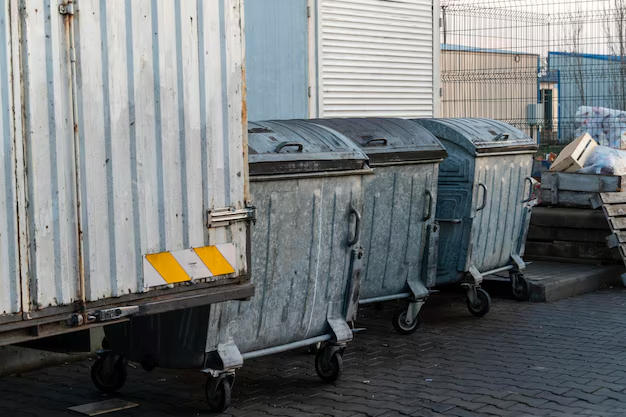How Much Does It Really Cost to Dispose of a Refrigerator?
Getting rid of your old refrigerator can be both liberating and perplexing. It marks the end of an era for an appliance that may have been a household staple. Yet, understanding the disposal process and its costs can be quite daunting. If you're on the verge of saying goodbye to your aged fridge, you're probably pondering the expenses linked with its disposal. Don't worry—this guide is crafted to navigate all the costs and options at your disposal. Let's dive in to understand the nuances of disposing of a refrigerator and ensure you're equipped to make informed decisions.
Understanding Refrigerator Disposal Options
Before diving into the costs, it's crucial to comprehend the various avenues available for disposing of a refrigerator. Each method has its unique considerations, costs, and procedures, ensuring you find the best fit for your needs.
Selling or Donating
If your refrigerator is still in good working condition, selling or donating it could be a win-win scenario. Many charitable organizations accept appliance donations, and some might even pick up the unit from your home. Donating can often be the most cost-effective route—though you won't earn money, you'll save on disposal fees and help someone in need.
- Tip: Check local charity guidelines to confirm they can accept and potentially pick up your fridge.
Municipal Recycling Programs
Many cities offer recycling services for large appliances. These services often aim to reclaim metals and dispose of hazardous materials safely. Fees can vary based on location but are often lower than private hauling services.
- Tip: Contact your local waste management facility for pickup schedules and fees.
Junk Removal Services
For refrigerators no longer operational, junk removal services can be a swift and convenient option. Most companies charge based on the size, weight, and difficulty of hauling the fridge, with costs varying significantly from one region to another.
Retailer Take-Back Programs
When purchasing a new refrigerator, inquire if the retailer offers a take-back program. Many stores remove your old appliance for a nominal fee or sometimes even for free with your new purchase. This option streamlines the process and eliminates the need for arranging separate disposal.
DIY Disposal
This approach involves transporting the refrigerator to a scrapyard or recycling center yourself. It may save money on disposal fees, but you'll need a suitable vehicle and assistance for safe transport.
- Important: Remember, refrigerators contain hazardous materials like refrigerants requiring special handling.
Evaluating Disposal Costs
The cost of refrigerator disposal can widely vary based on region, disposal method, and service providers. Let's dissect the potential costs associated with each disposal option.
Selling and Donating
- Cost: Minimal to none
- Considerations: Time to find buyers or coordinate with charities; potential tax deductions for donations.
Municipal Recycling Programs
- Cost: Often ranges from $10 to $50
- Considerations: Availability varies by city; may require scheduling ahead of time.
Junk Removal Services
- Cost: Typically ranges from $50 to $150, depending on location and service
- Considerations: Ensure the service is licensed to handle appliances with refrigerants.
Retailer Take-Back Programs
- Cost: Typically $0 to $50, possibly bundled with new purchase deals
- Considerations: Convenient; inquire upon purchase to confirm.
DIY Disposal
- Cost: Generally minimal beyond transport costs
- Considerations: Time and effort required; need access to a suitable vehicle.
Refrigerant Removal Fees
Regardless of the disposal method, remember refrigerators are subject to specific environmental regulations. Refrigerants—often CFCs or HFCs in older models—must be extracted and disposed of following EPA guidelines. This might incur additional costs if not handled by the disposal service.
- Cost: Removal of refrigerants can range from $15 to $50 if not included in disposal service.
Additional Considerations in Refrigerator Disposal
Environmental Impact
Refrigerator disposal doesn't just impact your wallet; it also influences the environment. CFCs and HFCs contribute to ozone depletion and greenhouse gases. Proper disposal ensures these harmful substances don't reach the atmosphere.
- Tip: Choose services that adhere to environmental guidelines and certifications.
Local Regulations
Compliance with local laws is crucial. Some regions mandate recycling of specific materials or require refrigeration expert certification.
Safety and Hazards
Apart from refrigerants, refrigerators contain other hazardous substances like oils and heavy metals. Mishandling can pose safety risks and environmental harm, emphasizing the importance of using proper services.
Shopping for Cost-Effective Disposal Services
For consumers seeking economical solutions, doing a little homework can go a long way. Here’s how to shop smartly:
Comparing Local Options
Survey multiple providers to compare their prices and services. Ensure they mention costs upfront, including ancillary fees related to refrigerant handling.
Leveraging Bulk Appliance Pickups
If upgrading multiple appliances, negotiate bulk pickup rates from junk removal or recycling services. Many offer discounts for disposing of several items at once.
Exploring Government Subsidies
Certain municipalities may offer subsidies or rebates for recycling appliances, effectively lowering disposal costs.
📝 Handy Summary
Here’s a quick snapshot of what you need to remember when disposing of your old fridge:
- 💵 Costs: Consider options like selling, donating, recycling through city programs, junk hauling, or store take-backs. Costs range from zero (donation) to about $150 (junk service).
- ♻️ Environmental Considerations: Proper disposal is essential to prevent environmental damage—choose eco-conscious services.
- 📌 Tips:
- Confirm with local charities if donating.
- Verify fees with your city's waste management for recycling.
- Utilize retailer programs during new purchases for potential cost savings.
Empowering the Final Decision
Understanding the costs and processes involved in refrigerator disposal empowers you to make informed, responsible decisions. Whether you’re keen to save money, prioritize convenience, or reduce environmental impact, weighing your options carefully ensures a hassle-free experience. As you retire your old fridge and welcome the new, rest easy knowing you’ve navigated your choice to best suit your home and planet.

